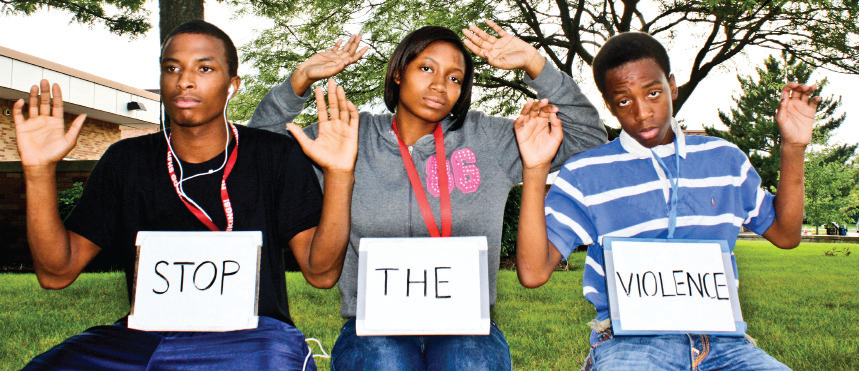Fury in Ferguson
September 16, 2014
The shooting death of Michael Brown in Ferguson last month frustrated 2013 graduate Adrianna Parker so much that she decided to organize a protest on the Loyola campus last week.
“If police can pick and choose who they target, who’s to say who will be next?”asked Parker.
When Brown, an unarmed black teenager, was shot and killed by a white police officer, protesters swarmed the streets in Ferguson as much of the rest of the country debated race relations.
A grand jury will eventually decide whether the police officer stands trial for the shooting. In the mean time many questions
are being asked about racial profiling, and the use of deadly force by police.
Parker says she organized her event to support Brown, Ferguson’s protestors and other lives that were lost under similar circumstances as Brown’s.
“It’s a danger to the American people,” Parker said. “People are dying because of racial profiling.”
Black Americans are five times more likely to be injured by police than whites, according to a Center for Disease Control
study released last week. Blacks age 20-24 are most likely to be killed by police.
English teacher Josh Brown says the events in Ferguson reminded him of the racial violence seen decades ago.
“I think back to the 60’s in Chicago, things like that did happen,” Brown said. “I don’t think that much has changed in the last 50 years that would make it impossible.”
Junior Tina Calhoun says racial profiling is too often ignored. She says students here are sometimes victims of profiling.
“I think it’s definitely more serious than what people think it is,” Calhoun said.
Junior Megan Blacher says the strained relationship between its police and community isn’t unique to Ferguson.
“Absolutely. I think it could happen anywhere as long as we have racial profiling,” she said.
The events in Ferguson have polarized public opinion. Textbook coordinator Lori Rossi says people need to know the facts
before they act.
“Personally, what I take from the case is that a lot of bad things can happen when people jump to conclusions, and they don’t really know what happened,” Rossi said. “It was a lot of reacting, and different points of view and nobody really knew what happened.”
Calhoun says the Brown case can teach people about race issues in America today. “I think we could learn a lot about our security and our government from the Brown case and about the social issues that are still plaguing America today,” Calhoun said.
Calhoun says all communities suffer from racial profiling, and people need to be aware of it.
“Because it isn’t always as obvious, but it’s definitely always around us.”

